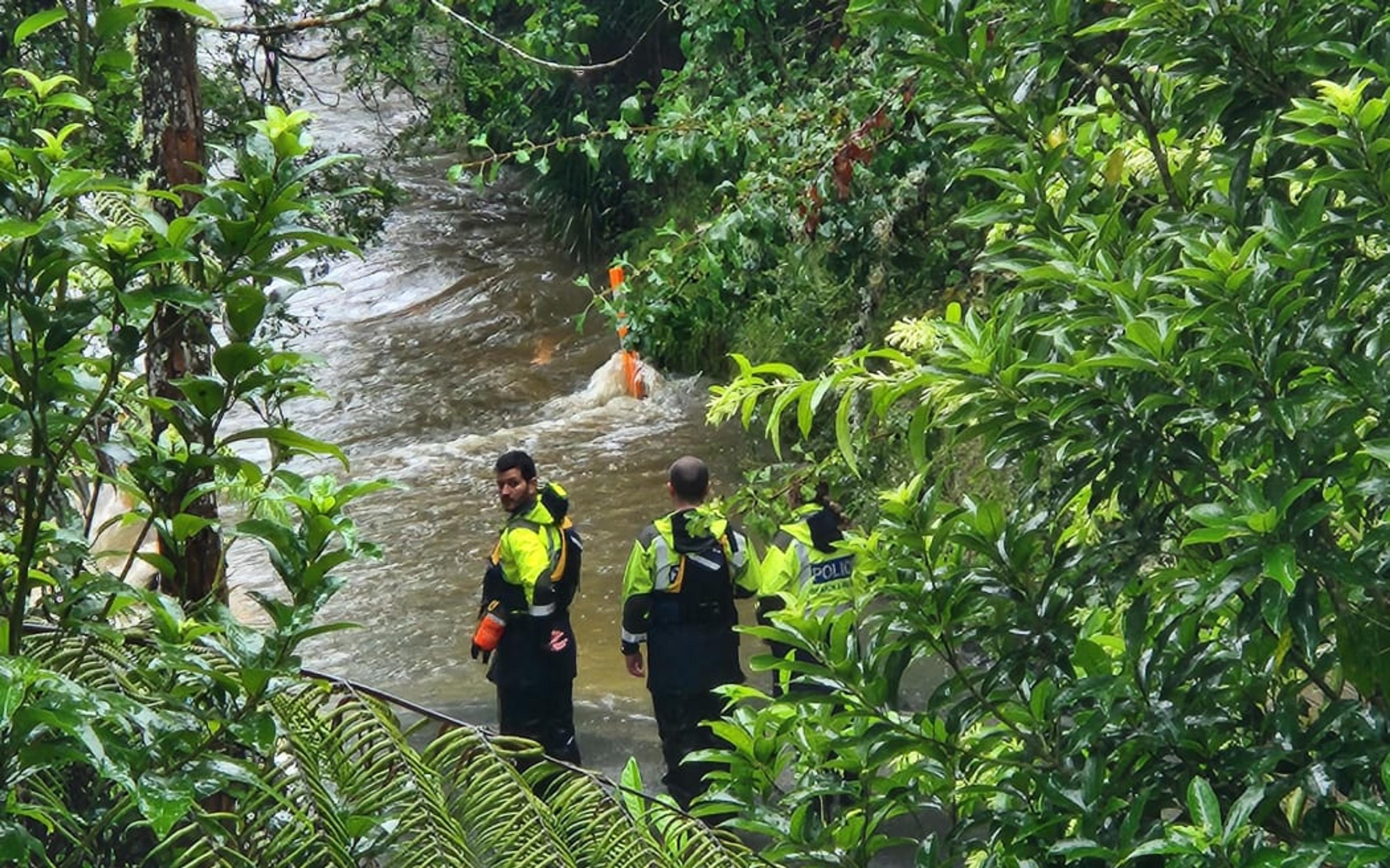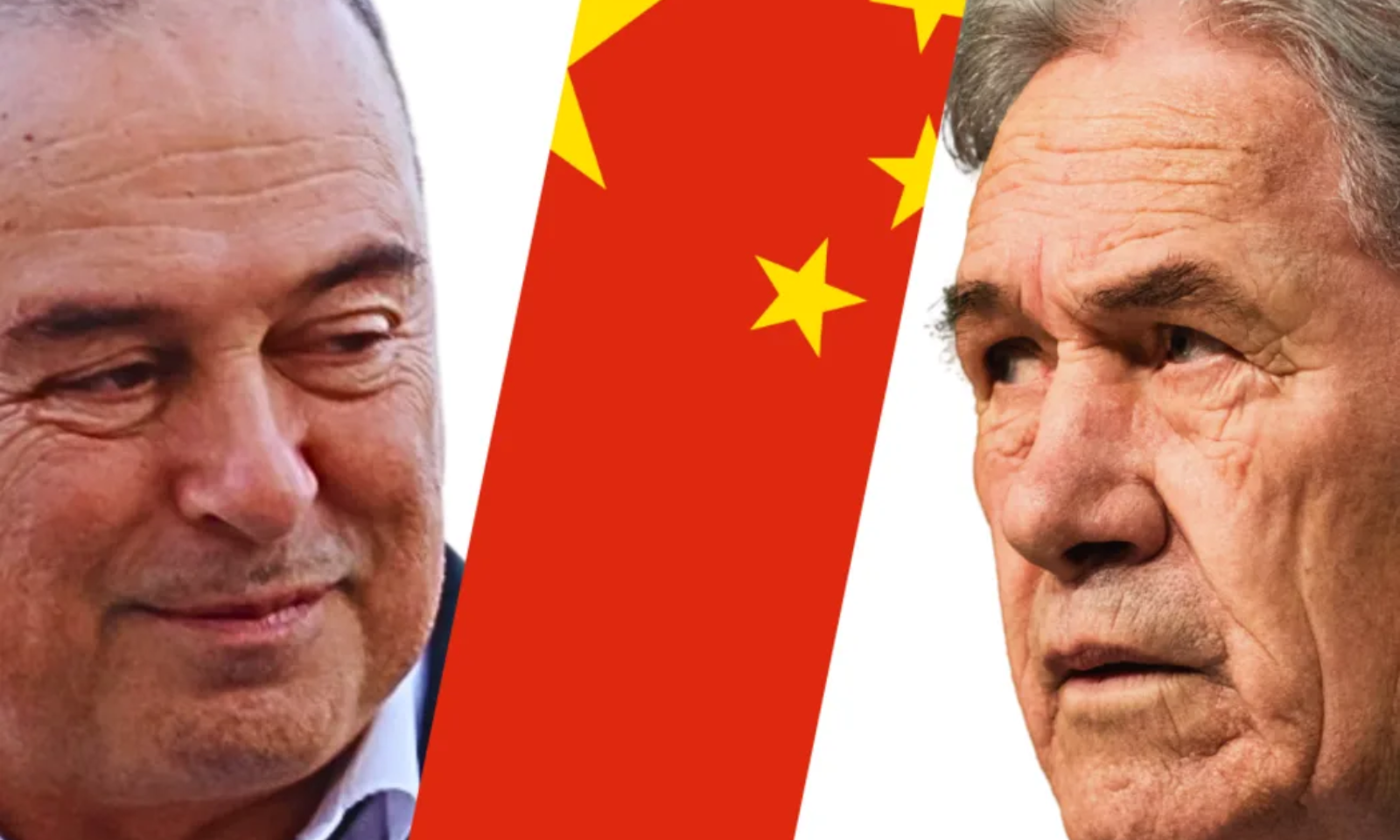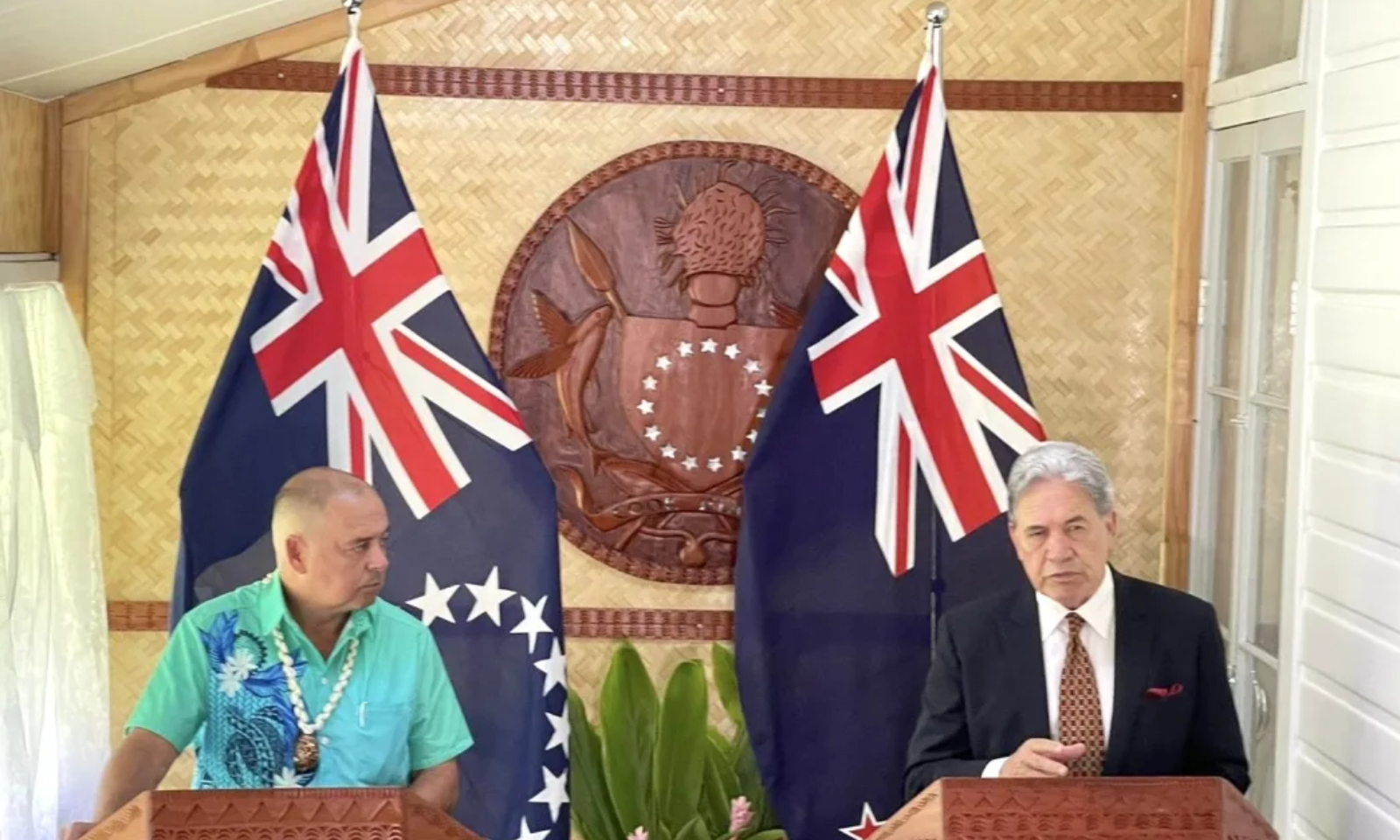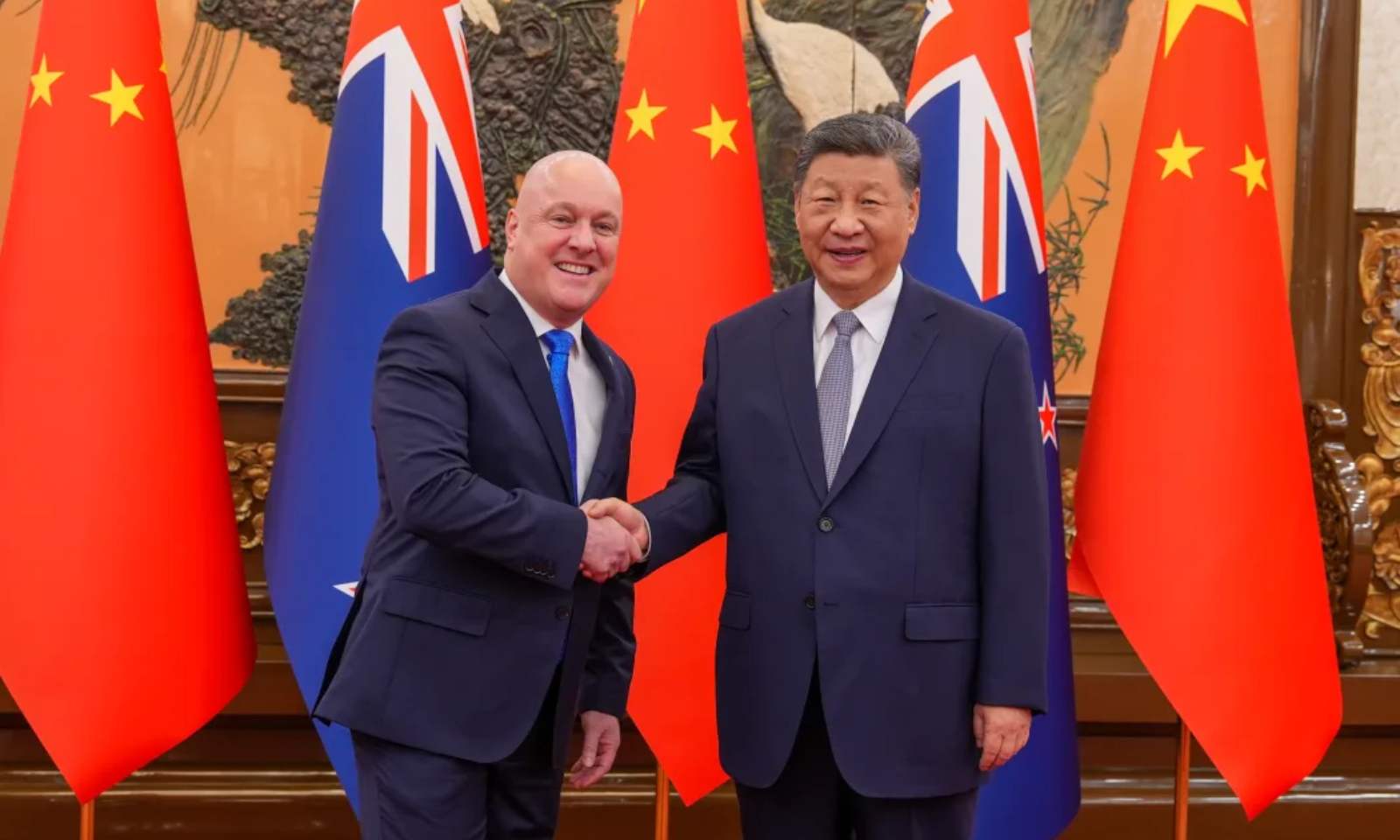

Dr Iati Iati, left, and Dr Anna Powles warn of the implications for New Zealand relationships with Pacific neighbours if it continues to use aid as a coercive tactic.
Photo/File/VUW/Massey University
New Zealand’s funding pause to Cook Islands is ‘not the Pacific Way’
The Government's decision has been criticised as a coercive tactic that could harm long-term trust in the region.


Fiji and Tahiti seize tonnes of cocaine in coordinated Pacific drug busts - officials


Kiribati man, Tauranga grandma and child among those missing or dead after NZ storms

Moana Pasifika rally behind Miracle Fai’ilagi as captain ahead of Drua showdown

Fiji and Tahiti seize tonnes of cocaine in coordinated Pacific drug busts - officials


Kiribati man, Tauranga grandma and child among those missing or dead after NZ storms
New Zealand’s suspension of funding to the Cook Islands government has seen tensions rise among officials and experts.
This follows reports that New Zealand’s Foreign Minister, Vaovasamanaia Winston Peters, withheld more than $18 million because Rarotonga failed to adequately inform Wellington about a partnership with China earlier this year.
But New Zealand has been accused of using aid as a bargaining chip, risking political instability following its recent decision to halt $18.2m in funding to the Cook Islands.
The assistance includes $10m in core sector support for health, education, and infrastructure.
The funding pause follows the recent agreement between the Cook Islands and China, which Aotearoa claims breaches the consultation requirements in the 2001 Joint Centenary Declaration (JCD).
The JCD also states that the Cook Islands has the constitutional capacity to conduct its own foreign affairs.
But experts like Dr Anna Powles and Dr Iati Iati argue that Aotearoa’s decision to pause the funding only damages its reputation as a development partner.
They suggest that this move could signal overconfidence and desperation from New Zealand, especially in light of its strategic interests in the region.
Both experts also believe a different approach is necessary to maintain healthy relationships with Pacific partners, emphasising that using development assistance as a punitive tool demonstrates insecurity rather than strength.
Listen to Dr Anna Powles' full interview below.
They warn that China might benefit from the tensions, positioning itself as a more reliable ally for the Cook Islands.
Powles, an Associate Professor of Security Studies at Massey University, says New Zealand’s approach could have negative long-term consequences.
“It's a punitive measure, and leveraging aid as a bargaining chip does not have a tradition of working well under any circumstances,” she says.
Powles says New Zealand’s decision reflects a misunderstanding of the 2001 declaration on consultations.
Clause 6 of the 2001 Joint Centenary Declaration states that the Cook Islands has full constitutional authority to conduct its own foreign affairs and should consult on matters that impact their shared interests.
Powles says the suspension risks destabilising Cook Islands politics and sends a troubling message to its citizens.

Cook Islands Prime Minister Mark Brown says media coverage in New Zealand has undermined the ongoing dialogue between Rarotonga and Wellington. Photo/RNZ Pacific
“It sends a very strong message that New Zealand has subtly shifted from being a development partner to being a partner with very clear national security interests,” she says.
Iati, a Senior Lecturer in Politics at Victoria University, says Peters implies that New Zealand will dictate the interpretation of the joint declaration.
He suggests that the Cook Islands' actions in the future will reveal whether the New Zealand government will undermine their efforts to develop an independent foreign policy.
“New Zealand appears to be asserting its strategic interests in the region, and using aid as the tool of choice. It could be a sign of desperation - aid conditionality is an unpopular tool, but the only one Mr Peters thinks New Zealand has left,” Iati says.
“It could be a sign of over-confidence - New Zealand thinks they can roll over Cook Islands' autonomy.”
Powles argues that China could take advantage of the tensions between New Zealand and the Cook Islands, positioning itself as a more respectful ally.

Cook Islands Prime Minister Mark Brown, left, and Foreign Affairs Minister Vaovasamanaia Winston Peters in Rarotonga. Photo/RNZ
This analysis follows Prime Minister Christopher Luxon’s visit to China, where he met with Chinese President Xi Jinping.
“It is understandable if the Cook Islands does seek to strengthen its relationship with China, which presents itself as a more reliable partner than New Zealand at this point in time,” Powles says.
Critiquing the donor-recipient dynamic between New Zealand and the Cook Islands, Iati believes the current tensions could create opportunities for alternative agreements with other partners.
He says Aotearoa would have responded differently if the Cook Islands had signed an agreement with a Western ally.
“There are alternative models to the donor-recipient one that New Zealand appears to be using, and other actors could offer these and enhance their position in the region.
“New Zealand is showing where it stands in relation to China's place in the Pacific, and putting Pacific countries on notice about what its expectations are,” he says.

Prime Minister Christopher Luxon, left, and Chinese President Xi Jinping talking bilateral relations in Beijing. Photo/Office of the Prime Minister
Looking ahead, Iati and Powles call for a different approach to maintain New Zealand’s relationship with its Pacific partners.
“Playing hardball with the region is not the Pacific Way,” Iati says.
Powles adds that New Zealand’s punitive approach in negotiations with the Cook Islands does not contribute to regional stability.
“It sends a very poor message in terms of how New Zealand seeks to resolve issues that emerge between New Zealand and its Pacific partners, and this type of action,” she says.
“This very punitive measure of using development assistance as a bargaining tool demonstrates weakness and insecurity in the relationship rather than strength.”
This story has been updated to state that the core sector support is $10 million, not $10.2m, as reported earlier in the fourth paragraph.